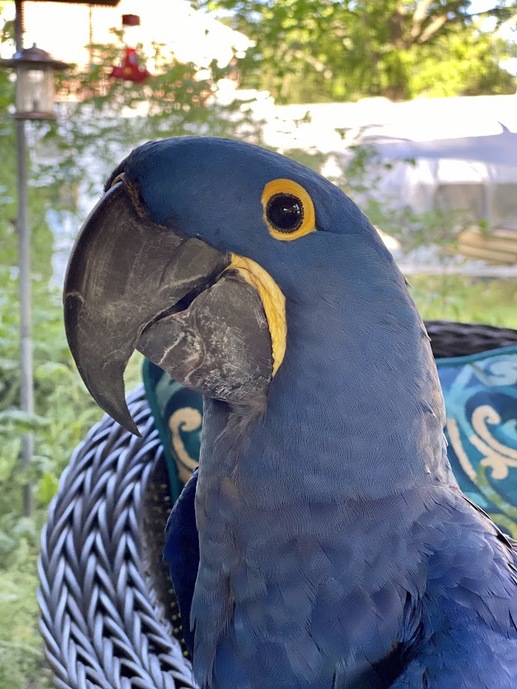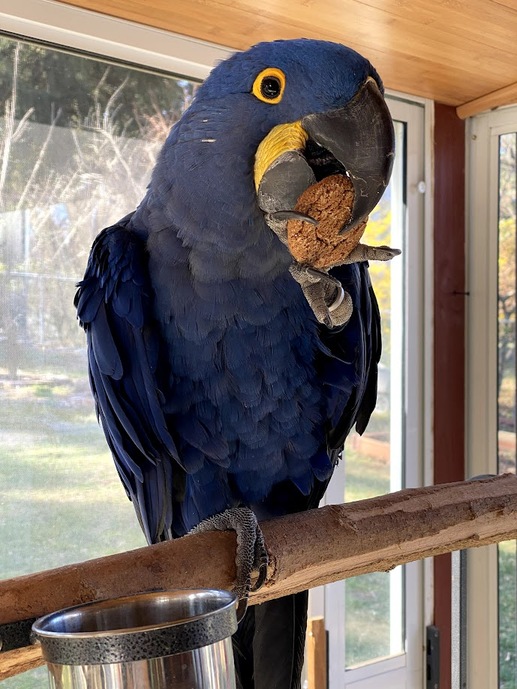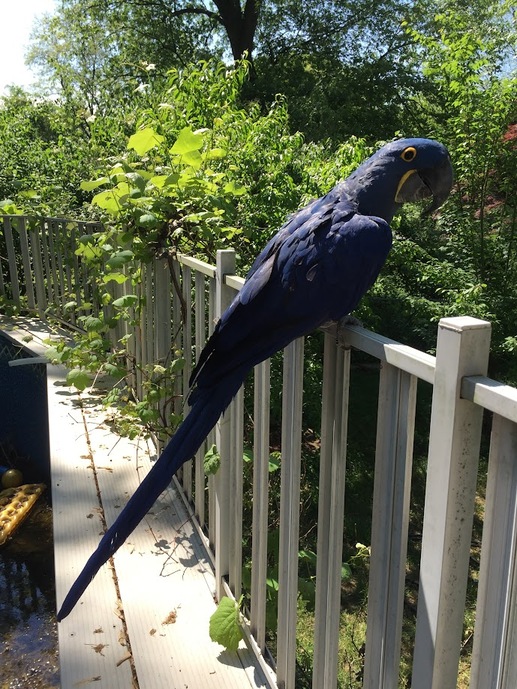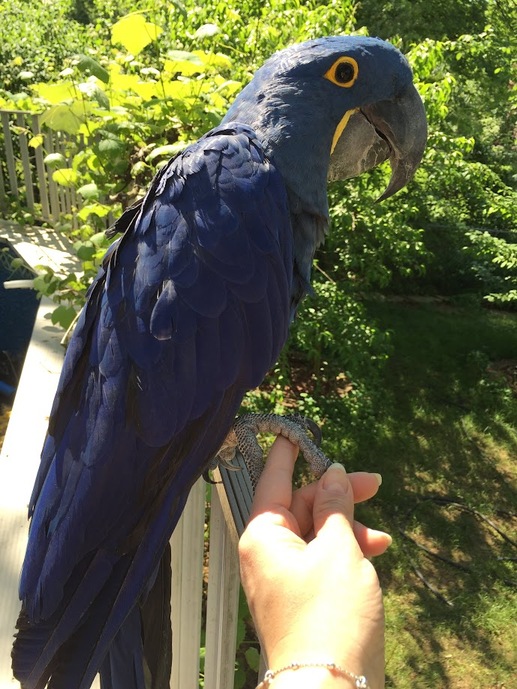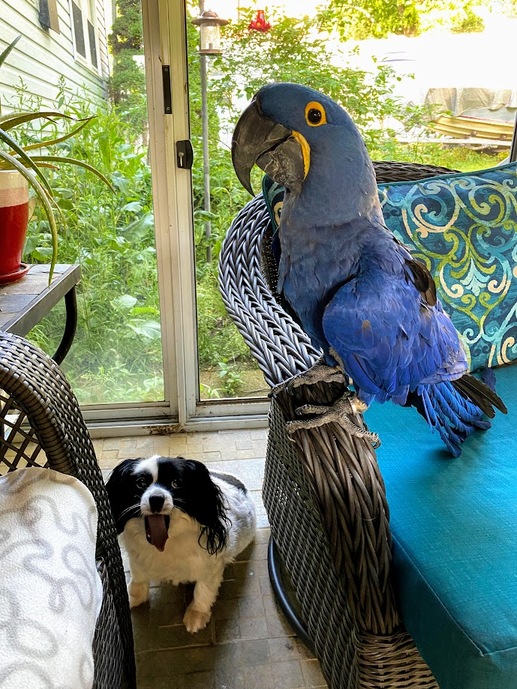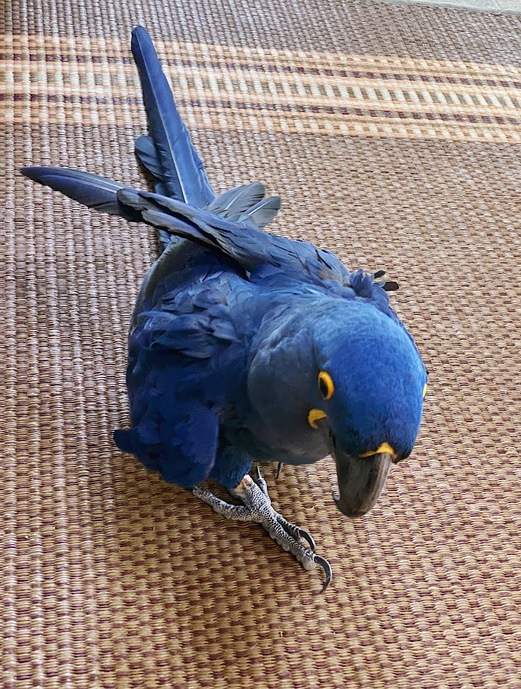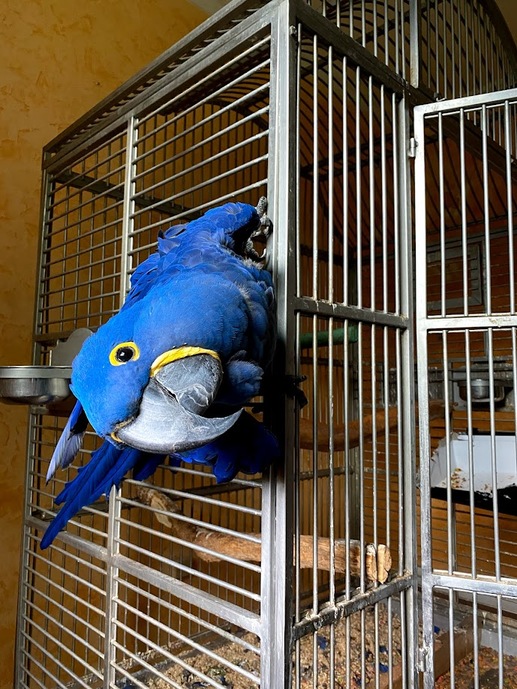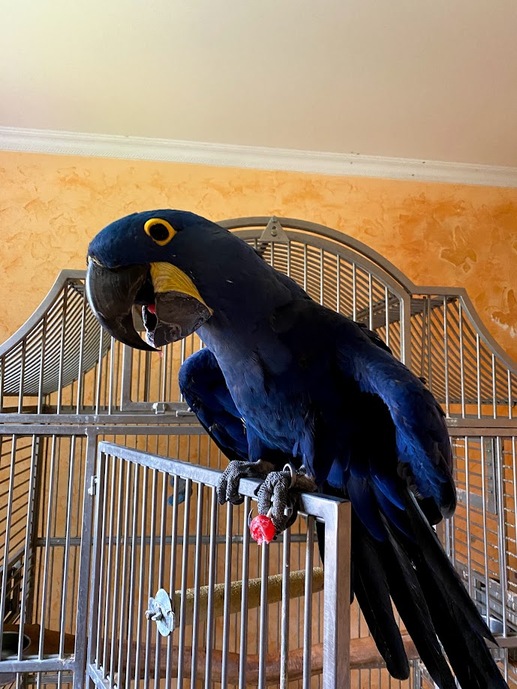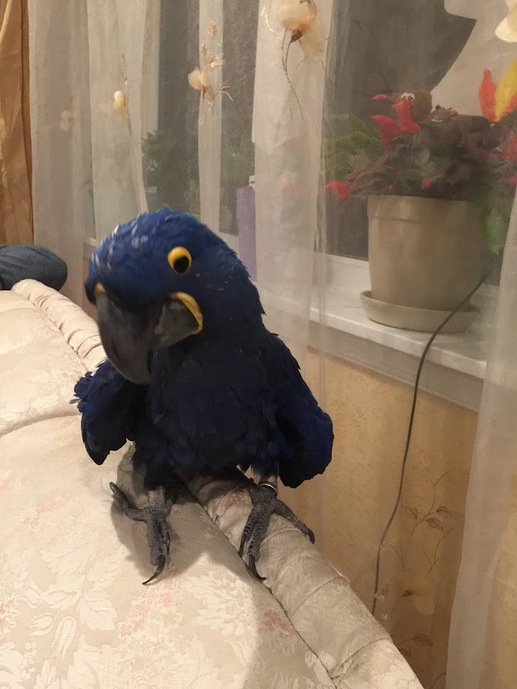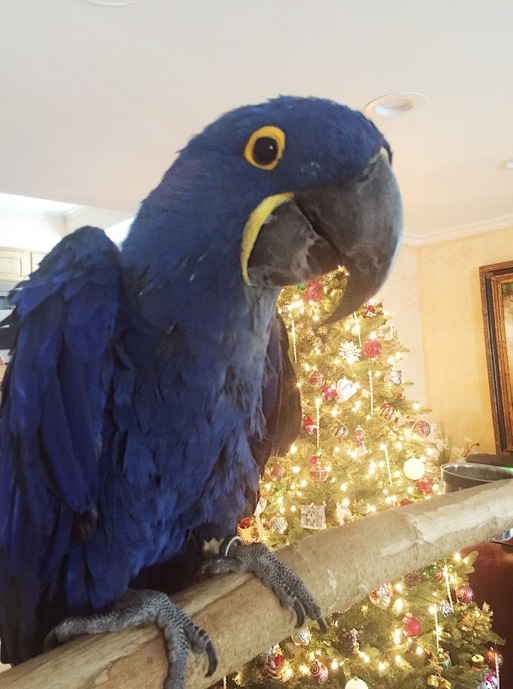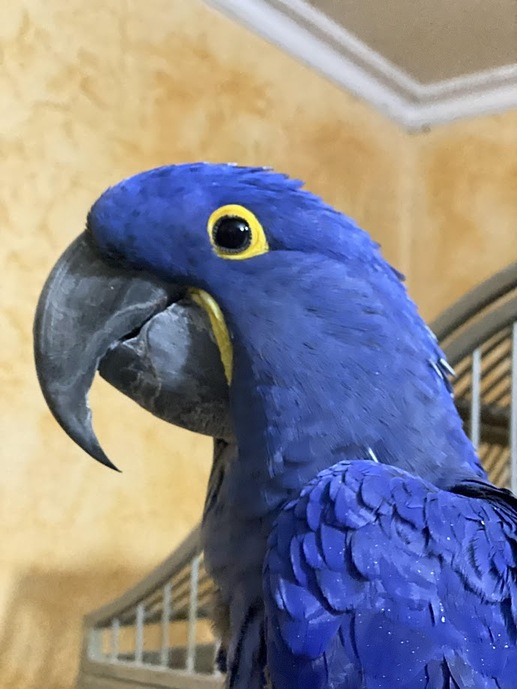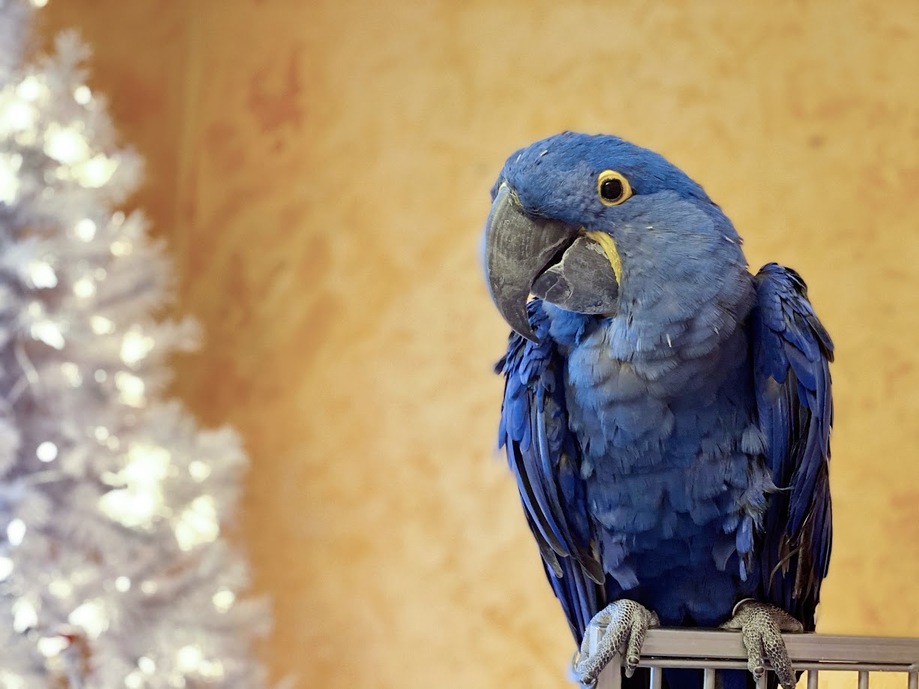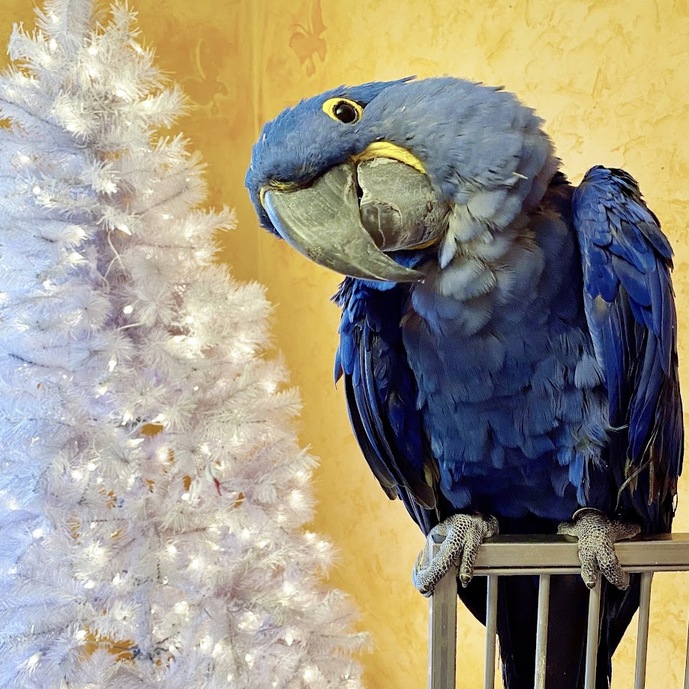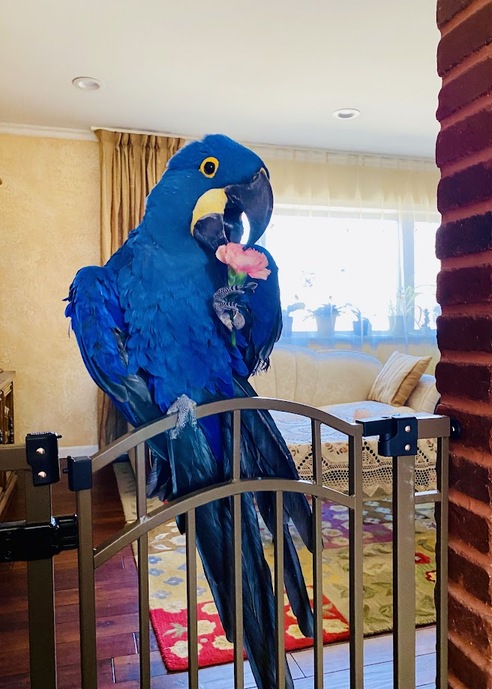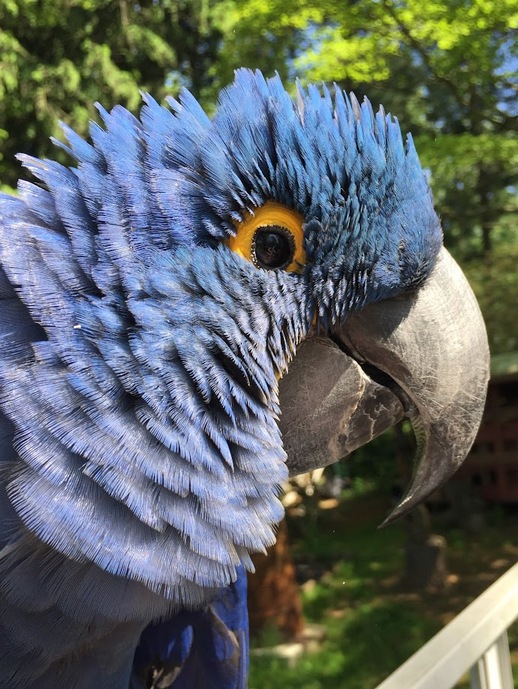Hyacinth Macaws - Speech & Sound
Hyacinth Macaws are known for their ability to mimic human speech and other sounds. Here are some things to keep in mind when it comes to their speech and sound abilities:
- Intelligence: Hyacinth Macaws are considered to be one of the most intelligent bird species, and they have the ability to learn and imitate a wide range of sounds, including human speech, music, and environmental sounds.
- Training: Training a Hyacinth Macaw to talk requires patience, consistency, and positive reinforcement. Owners should start by teaching them simple words and phrases, such as “hello” and “goodbye,” and gradually work up to more complex sentences.
- Natural vocalizations: In addition to mimicking human speech, Hyacinth Macaws have their own natural vocalizations, including loud screams, squawks, and whistles. They use these vocalizations to communicate with other birds and to assert their territory.
- Socialization: Hyacinth Macaws require plenty of socialization and interaction with their owners in order to develop their speech and sound abilities. They are more likely to learn and imitate sounds when they are happy, healthy, and well-socialized.
- Individual differences: Like humans, each Hyacinth Macaw has their own unique personality and vocal abilities. Some may be better at mimicking human speech than others, and some may have their own distinct vocalizations that they prefer to use.
Hyacinth Macaws are highly intelligent and social birds that are capable of learning and imitating a wide range of sounds, including human speech. With patience, consistency, and positive reinforcement, owners can help them develop their speech and sound abilities over time.
